Issue/Volume: 21/02

The month of July was marked as much by new beginnings as it was by taking stock and scaling up of existing efforts. A new programme on regenerative agriculture took off in Madhya Pradesh, and Solidaridad’s efforts in the Panipat textile cluster were recognised and honoured. The month also saw a quarterly review of the progress made in the leather sector, and workshops and events around critical issues such as ‘gender and decent work’, ‘occupational health and safety’, ‘financial literacy’, and more.
Happy reading!

Solidaridad Awarded ‘Industrial Water Project of the Year 2024’ Prize
Solidaridad’s project in the Panipat textile cluster has been awarded the ‘Industrial Water Project of the Year 2024’ prize for its initiatives in reducing water consumption in textile industries. The award was presented by the Global Energy and Environment Foundation (GEEF), which recognised Solidaridad’s efforts in reducing water consumption, implementing process modifications, enhancing steam recovery, improving steam-usage efficiency, and recycling both treated and untreated effluents in Panipat’s textile units.
The award was given by Dr Shashi Shekhar (IAS–Former Secretary) and Rakesh Kumar Verma (IAS–Additional Secretary), both from the Ministry of Water Resources, Government of India. Senior advisors, chairpersons and heads from the public and private sectors attended the event.
An analysis of the results from 10 initial enterprises reveals that Solidaridad’s interventions saved 451,537 litres of water per day across 310 working days over the past year – translating to annual water savings of around 140 million litres. Estimates also suggest that even if 200 of the 400 registered dyeing units in the Panipat textile cluster adopt Solidaridad’s solutions, around 9.03 million litres of water can be saved daily, amounting to an impressive annual savings of 2,800 million litres.

APOA–Solidaridad Workshop Addresses Myths and Misconceptions on Palm Oil
In collaboration with the Asian Palm Oil Alliance (APOA), Solidaridad organised a workshop, ‘Palm Oil: Transforming Perceptions for Health and Nutrition’ in Indore, Madhya Pradesh, on 28 June 2024. The event addressed common misconceptions in our understanding of palm oil and its roles.
Bringing together a diverse group of speakers, participants, and scientists, the workshop provided a crucial but balanced, in-depth view of palm oil’s nutritional benefits, its sustainable production, and the key role it plays in ensuring global food security, while also contributing to the realisation of the vision of ‘a self-reliant India’. The challenges faced by the palm oil industry, and potential innovative solutions to these were also discussed. In addition, an exhibition showcasing a wide range of palm-oil-based products illustrated the versatility and widespread application of the commodity in our day-to-day lives.

Scaling Up the Groundnut Model Farm Project
The Groundnut Model Farm Project – a collaborative initiative between Solidaridad and the Solvent Extractors’ Association (SEA) of India – is committed to showcasing scientific groundnut cultivation practices to large numbers of farmers through technology. Groundnut, one of India’s most important oilseed crops, is grown over 4.88 lakh ha of land in the country, producing nearly 10.13 million tonnes (April 2024 estimates) against the set target of 10.64 million tonnes for the 2024–25 season.
The Groundnut Model Farm Project is contributing significantly to the attainment of this target and the government’s larger goal of attaining self-sufficiency in edible oil production. This year alone, 183 model farms have been developed across 10 districts and 139 villages in Madhya Pradesh, Rajasthan and Karnataka. The frontline demo plots will help groundnut producers learn and adopt key agronomic practices which are essential to realise the potential yield of the crop. As a result, 41,000 farmers are sustainably cultivating groundnut over nearly 45,000 ha of land. These farmers receive seeds, inputs and technical assistance from the project. It has also been estimated that the production of groundnut oil can be increased by 25–30 per cent by adopting good agricultural practices and lowering costs of cultivation. The Groundnut Model Farm Project strives to provide farmers with the necessary resources and knowledge to achieve this goal, ensuring higher yields and better-quality produce in the process.

Good Farming–Good Food–Good Health Programme Equips Anganwadi and ASHA Workers with Essential Skills
Under the Good Farming–Good Food–Good Health initiative, Solidaridad is actively collaborating with various government departments to empower grassroots workers and strengthen rural communities. The project aims to improve agricultural practices, ensure food security, and improve health outcomes. More than 550 anganwadi and ASHA workers – all of whom form the backbone of rural and community-based healthcare, and serve as a critical link between communities and the public health system – have been trained across five districts of Madhya Pradesh. They are now empowered and equipped with various knowledge and skills – on sustainable farming, nutritious diets, basic healthcare as well as better health practices. These are foundational steps that the programme is taking to ultimately ensure the well-being of rural populations.

A New Initiative for Regenerative Farming Takes Flight
Solidaridad, in partnership with the Louis Dreyfus Company (LDC), has started a new programme called ‘Farming for a Sustainable Future through Regenerative Agricultural Practices’. The launch event took place on 26 July 2024 in the village of Abhali in Barwani district.
The programme aspires to promote sustainable, regenerative farming techniques that improve soil health, enhance biodiversity and enhance farmers’ livelihoods. Implemented in close collaboration with government agencies, the project intends to set up 50 model farms of various seasonal crops within the project regions. This season, 50 such farms of maize have been established by reaching out to 3,000 farmers. Through farmer field schools, Solidaridad and LDC are working together to support farmers with knowledge and training on climate-resilient agricultural production.

Block-Level Meeting Yields Useful Insights on Systems for Long-Lasting Change in Agriculture
A block-level convergence meeting held in Derabish block, Kendrapara district, Odisha, on 18 July 2024, featured discussions on streamlining the implementation of government schemes. Presided over by Dasarathi Jena (OAS, BDO, Derabish block), the meeting was attended by officials from various state departments (Agriculture, Horticulture, Fisheries, Panchayati Raj, among others).
The event saw different presentations – on the background of the Smart Agri Project and its objectives, the setting up of the Solidaridad and Sarat Kar & Anima Kar Foundation Centre of Excellence, interventions implemented (such as the System of Rice Intensification in paddy cultivation, and nutrition gardens for dietary diversity), promotion of women-led FPOs, development of model agricultural villages, and the overall convergence framework.
Key discussions between the participants touched upon topics such as the identification of beneficiaries based on eligibility criteria, implementation of appropriate schemes for small-scale farmers, digitisation of agriculture, community aggregation, collective marketing, and more. Furthermore, in this talk, Dasarathi Jena highlighted a few aspects to bring about long-lasting change – support systems for NGOs/CBOs, information centres for farmers and consumers, proper use of unutilised lands, robust implementation of government schemes, promotion of cash crops, effective waste-management systems (for solid and liquid waste), and a sense of selfless service among agents of change.

Solidaridad–ATMA Programme Instructs Farmers on the Reduced Use of Chemical Inputs
On 18 July, Solidaridad and the Agricultural Technology Management Agency (ATMA) conducted a programme for 40 farmers in the Dhamangaon cluster in Maharashtra’s Amravati district. The participants were supported with training on the minimum use of chemical pesticides and fertilisers. They were also guided on the use of bio-inputs such as dashaparni ark and nimboli ark. The importance and use of integrated pest management (IPM) tools such as yellow sticky traps and pheromone traps were also explained. Other topics of discussion included practices such as weeding, mulching and effective water management. During the programme, water tanks with capacities of 200 litres were distributed among the farmers.

Sessions on Health, Nutrition, and Sustainable Livelihoods Sees Good Engagement from Women
Throughout July, a series of training programmes were held at various project locations across Maharashtra – in the villages of Sillewada and Parsodi Wakil (in Nagpur district), Donduda (in Wardha district), and Sawla (in Amravati district). The sessions, aimed at women, provided a detailed perspective on good agricultural practices, health and nutrition and alternative livelihood opportunities (such as mushroom cultivation). The event also witnessed the participation of members of local self-help groups (SHGs) and farmer producer organisations (FPOs).
As malnutrition and anaemia are major health issues in these areas, the sessions particularly focused on the importation of nutrition gardens, and how vegetables and fruits can be grown in backyards of homes without much investment. The experts also guided the women on how to make informed food choices, and ensuring why diversity in diets is necessary. The sessions were well-appreciated by the participants.

Farmers in Maharashtra’s Rural Belts Appreciate Lessons on Water-Efficient Farming
Kaniyadol and Kokarda are adjacent villages in Nagpur district, Maharashtra, whose farmers use a significant amount of water for agricultural purposes. In July, Solidaridad conducted a farmers’ training session in Kaniyadol to educate and guide farmers on the necessity and implementation of GAPs as well as water-efficient and -saving practices to enjoy greater yields, more profits, and a better quality of life. The process of rejuvenation of waterbodies such as farm ponds and community ponds was explained, as were practices such as rainwater harvesting and drip irrigation. Agriculture techniques such as minimum tillage, crop rotation, intercropping, weeding and mulching were also explained. Demonstrations on the preparation and use of low-cost bio-inputs like dashaparni ark, and organic pest-elimination techniques, received the farmers’ stamp of approval. At the end of the event, Solidaridad and members of the local gram panchayat in Kaniyadol joined hands to plant trees.

Farmer Field Schools and Training Sessions Impart Lessons on GAPs, IPM, Agritech Solutions, and More
A farmer field school was held in Risala village in Nagpur district’s Saoner block on 15 July 2024. The school encouraged and trained farmers to adopt GAPs, and enhanced, modern, sustainable, climate-resilient and water-efficient farming methods. Other topics covered include crop management, IPM, nutrient management, fertiliser application, mulching and more. The participating farmers also learned much about the utility of the Smart Agri app, its various advisory services that relay data collected in real time, and its missed-call facility.
Similar training programmes were held in July in two other locations in Maharashtra – Hinganghat block in Wardha district, and the village of Wagholi in Amravati district.

Gender and Decent Work Share the Spotlight in an Interactive Session in Nagpur
Under Solidaridad’s cotton programme in Maharashtra, a training session on 'Gender and Decent Work' was organised at the Burujwada Resource and Training Center in Nagpur district, on 17 July 2024. 45 women participated in this session.
Through participatory exercises and activities, gender-based roles were explained with the aim to generate awareness and sensitivity towards gender inclusion. 'Decent work' components – such as freedom of association, fair remuneration, health and safety, no bonded labour, no child labour, no inhuman or harsh treatment, environmental protection, decent working hours – were all discussed during the session. The session turned out to be highly interactive, and highlighted the valuable insights and experiences of women in agriculture.

Celebrating Maharashtra Krishi Din
Maharashtra Krishi Din is observed every year on 1 July – the birth anniversary of Vasantrao Naik, considered the father of the Green Revolution in the state. Solidaridad marked the occasion with a host of events across project locations in the districts of Amravati, Nagpur, Wardha and Yavatmal, where farmers participated with great enthusiasm. At the events, Solidaridad generated awareness on climate change and its adverse effects on agriculture. The importance of sustainable farming practices, water efficiency, soil organic carbon and carbon sequestration was also discussed.
In Wardha district, an awareness rally was taken out with the participation of schoolchildren from a local institution. At Dabhada village, in Amravati district, the event featured a tree-plantation activity at a primary school. At Asegaon village, in the same district, Solidaridad trained farmers on the use of weather-based advisories from the Smart Agri app.
In Nagpur, the Agriculture Department also participated in our celebrations. At Tembhurdoh village in the district, the awareness rally saw the participation of children and teachers from a primary school. Informative flexes were carried on a bullock cart, while Solidaridad staff provided farmers information on ways and processes to apply for, claim and use crop-insurance schemes.
In Yavatmal district, events were held at multiple villages – Mangaladevi, Brahmanwada, Wadgaon, and Borimahal. These mostly saw the participation of FPO members, both men and women.
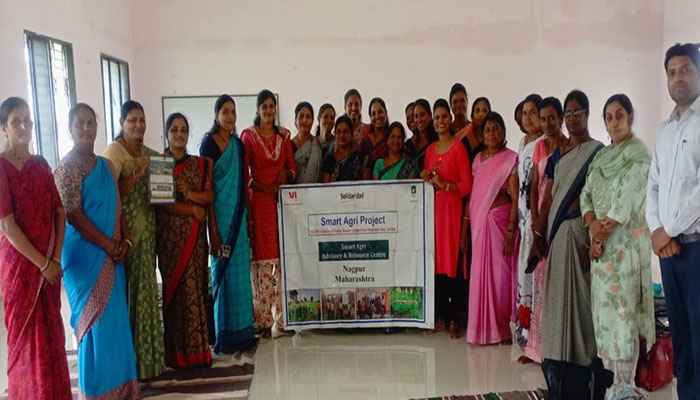
Training Sessions Provide Lessons on Green-Job Creation, Decent Working Conditions, Sustainable Livelihoods, And More
The creation of green jobs formed the crux of two sessions held in July in Maharashtra – one at the Burujwada Resource and Training Centre in Nagpur district, the other at Selu village in the same district. The sessions were targeted mainly at SHG members and community resource persons (CRPs), but with a large number of women in attendance, the programme modules evolved to incorporate topics such as network creation for increasing sales, tools, resources and methods of making low-cost bio-inputs (such as dashaparni ark and nimboli ark), and supplementary income-generating activities. The women were also briefed on financial management, access to market and income sources, IPM, practices such as weeding and mulching, and decent working conditions. They were also guided on the setting up of vermicomposting units and mushroom cultivation units, that can provide additional sources of income, should the need arise.
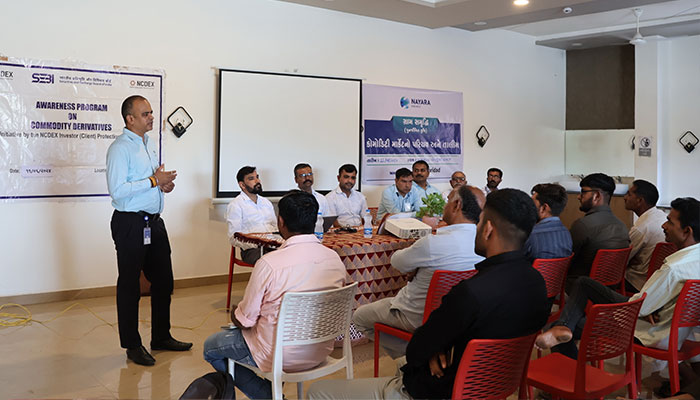
Improving Financial Literacy and Operational Efficiency of Farmers and FPOs
The Solidaridad team overseeing the Gram Samruddhi Project in Jamnagar district, Gujarat, recently collaborated with the National Commodity & Derivatives Exchange Limited (NCDEX) to provide farmers, the boards of directors and shareholders of FPOs with an extensive training. Important topics addressed include the [commodity] delivery process, price-risk management, hedging, the future of agricultural commodity markets, and the reimbursements and subsidies available to FPOs. The goal of this session was to improve the financial literacy and operational efficiency of farmers and FPOs by providing insights into the commodity derivatives market. The comments and observations of the project funder (NAYARA Energy) and other important stakeholders present at the programme greatly contributed to this goal.

Experts Analyse Effects and Results of Interventions in India’s Leather and Textiles Clusters
In July, leather and textiles experts and specialists gathered in Chennai for a quarterly review meeting, hosted by the Tamil Nadu leather project team. The two-day event focused on identifying and resolving barriers to the achievement programme deliverables. Presentations by the teams overseeing individual clusters (Kanpur, Kolkata, Panipat, Tamil Nadu) shed a light on the various environmental initiatives and innovative approaches being undertaken under the individual projects to bring forth tangible results. Appreciating the efforts, Tatheer Zaidi, Asia Head of Pollution Management in MSMEs at Solidaridad, also provided corrective measures to streamline operations and optimise project outcomes.
Sessions on calculating greenhouse gas (GHG) emissions, and project planning, monitoring, evaluation, and learning (PMEL) activities, conducted by in-house experts equipped participants with the necessary tools to further improve their project management strategies. The event concluded with a renewed commitment to greater collaborative efforts among the clusters, emphasising the importance of strengthening project outreach and internal cohesion.
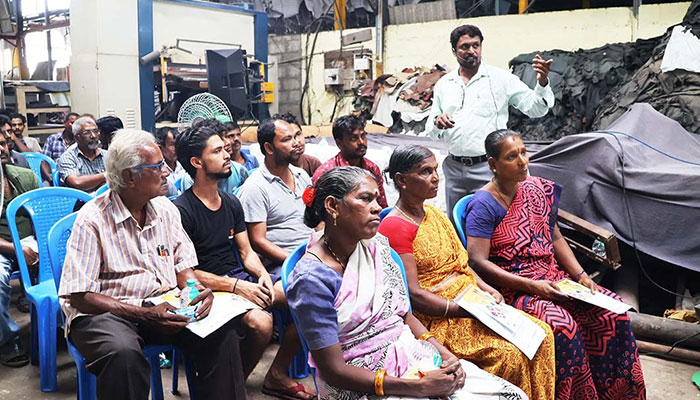
Putting Workers’ Health and Safety First in Chennai’s Leather Cluster
An occupational health and safety (OHS) workshop was recently conducted at a local tannery (owned by Alamelu Industries) in Pallavaram, Chennai. Attended by 34 workers, the event aimed to enhance workplace health and safety standards. Meticulously planned to address key safety concerns, the workshop was led by an experiencedcOHS professional, who discussed topics such as proper handling of chemicals, the importance of personal protective equipment (PPE), and protocols for emergency situations. Participants engaged in interactive sessions where they shared their experiences, discussed best practices, and exhibited a better understanding of safety standards than before. The inclusion of women in the session further highlighted the tannery’s and the project’s commitment to gender inclusivity, and their cognisance of women’s right to safe workplaces.
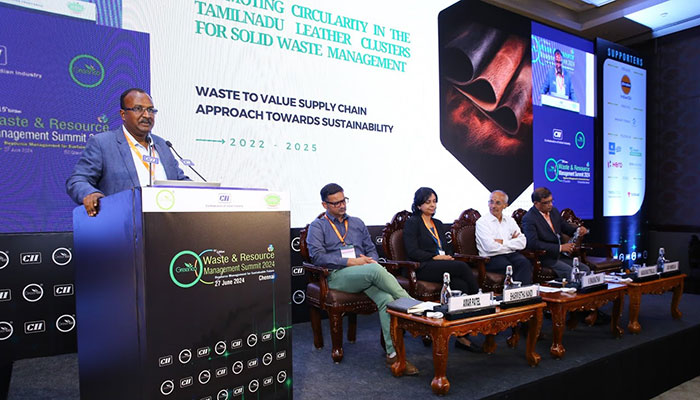
Championing Circular and Green Economy Principles at the GreenCo Summit, 2024
Solidaridad participated in the 13th edition of the GreenCo Summit, 2024, organised by the Confederation of Indian Industries (CII) at Chennai, towards the end of June. In keeping with the event’s theme, ‘Green Makes Business Sense’, Solidaridad showcased its efforts to address the issue of solid waste management in the Tamil Nadu leather clusters. A presentation titled ‘Promoting Circularity in the Tamil Nadu Leather Clusters’ highlighted innovative strategies and practices that can drive sustainability in the leather industry, with a particular focus on the ‘waste-to-value’ model – an approach that can convert solid leather waste into fashionable articles with a high utility value.
The event gathered industry leaders and subject experts, which provided collaboration opportunities for Solidaridad in advancing the goals of attaining ‘Net Zero’ and a circular economy. Additionally, a diverse exhibition of green products, technologies and services provided the Solidaridad team significant learning opportunities on GHG-emission reduction practices.

The Self-Made Sustainable Tea Farmer and Entrepreneur
For the past decade or so, Girish Chutia, a small-scale tea grower from Tinsukia district, Assam, has been producing high-quality tea under the banner of Barekuri Organics, while also maintaining a chemical-free tea garden of his own. Girish is the leader of Barekuri Organics, a collective of small tea growers from Joygukhowa village in Tinsukia district, whose eponymous brand now markets an array of different, high-quality, handcrafted teas – of the blue, white, rose, and dheki varieties. Girish and the brand have now gained an international audience, and also garnered acclaim from the Asia Tea Alliance.
However, Girish, who has been in the tea business for over 30 years, was not a happy farmer for a long time. He was not at all pleased with the prices he was getting for the green leaves that he provided to some local factories producing black CTC tea. Thus, in 2014, he started processing his own green leaves in a small manufacturing unit on his premises, producing completely handmade and chemical-free tea, boasting of a distinct freshness, for the market.
Over the years that followed, Girish came to be associated with the Trinitea and the Smart Agri projects. “In motivating and supporting this small enterprise of mine, Solidaridad, especially through their Trinitea programme, has extended a helping hand to small tea growers like us. They have provided various agricultural implements through Vodafone-Idea Foundation’s Smart Agri Project and arranged training in tea cultivation and other crops. Additionally, Solidaridad has undertaken various initiatives to create an international market for the handmade tea produced by small tea growers,” Girish mentions.
In his community, Girish is an inspirational figure whose entrepreneurial efforts have inspired other farmers to follow his practices and aim for greater heights. On 11 July 2024, Girish’s journey as a sustainable tea farmer and entrepreneur came full circle when he launched his own tea shop to display all his products, and opened the doors to consumers to taste his teas and pick and choose the ones they prefer. The Solidaridad team attended this momentous event. Also present at the event was Girish’s mentor, Dinesh Pareekh, who first got him started on the path to sustainable tea farming.
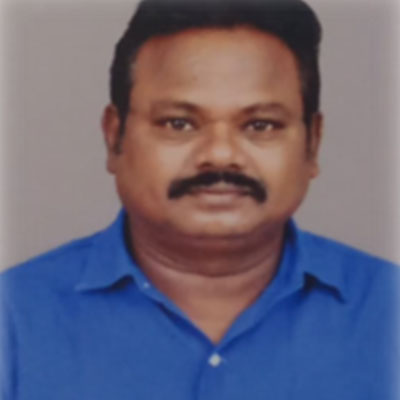
Arun Kumar, joined us on 01 July 2024, as a Programme Officer in our EU Leather project in Tamil Nadu. He is a leather technologist with more than twenty years of experience in the leather industry. He comes with an experience in the process of leather making, quality management, finishing and merchandising. He was previously working with A.S. Enterprises as a Production Manager. He did his Diploma in Leather Technology from Andhra Pradesh Government Institute of Leather Technology, Hyderabad.
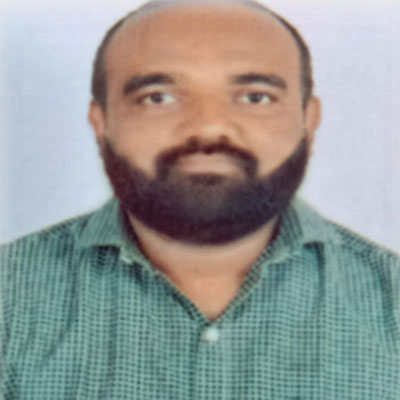
Tushar Vaghela, joined us on 01 July, 2024, as an Assistant Manager in our Jamnagar, Gujarat project funded by Nayara Energy. He has more than eight years of work experience in crop production, sustainable agri practices, natural farming, better cotton production, value chain, and regenerative agriculture. He has completed his Ph.D. in Agriculture with specialization in agronomy and crop production from Navsari Agricultural University, Gujarat. He has done his Masters in Agriculture from Junagarh Agriculture University. He was previously working with Synergy Technofin Pvt. Ltd. Junagadh, Gujarat in GIZ Funded – DPPP project as an Agriculture Expert
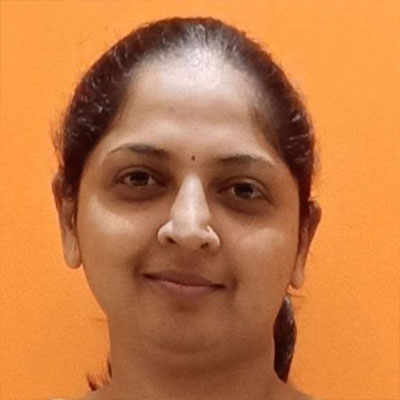
Bhumika Solanki
Field Coordinator, Jamnagar, Gujarat
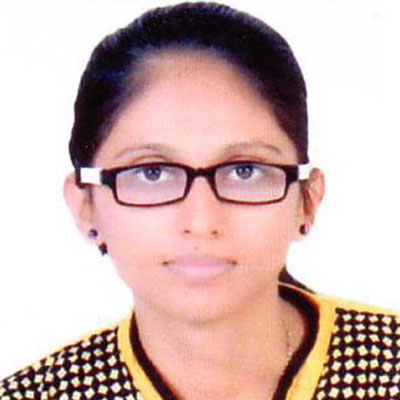
Chothani Ektaben Parsotambhai
Field Coordinator, Jamnagar, Gujarat
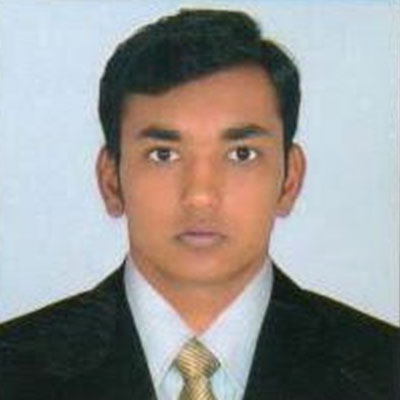
Vrajlal Bhikhubhai Soniriya
Field supervisor, Jamnagar, Gujarat
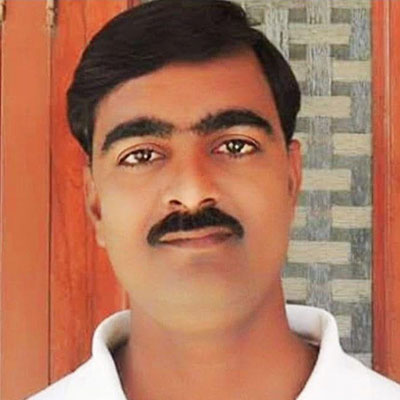
Jaday Uday Vrajlal
Field Supervisor, Jamnagar, Gujarat
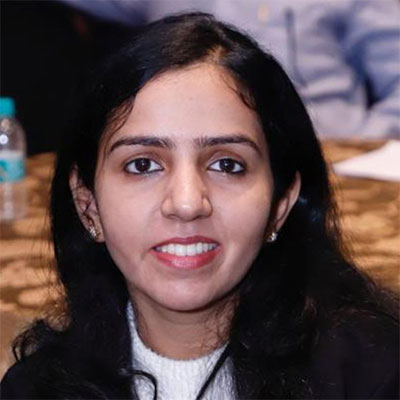
Heena Bhasin
Manager-Human Resources